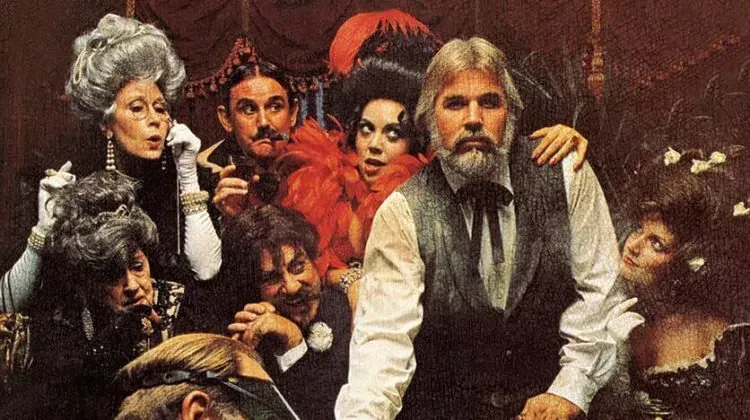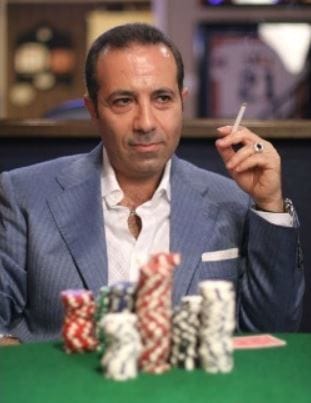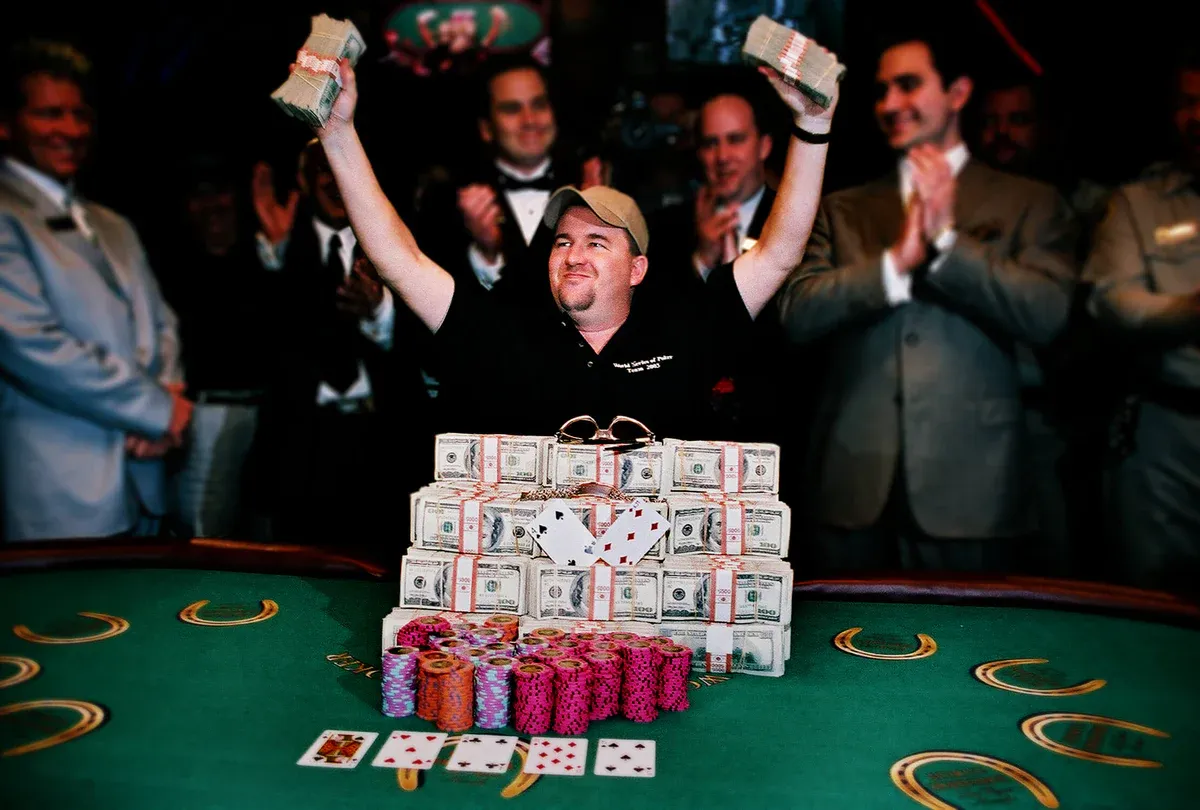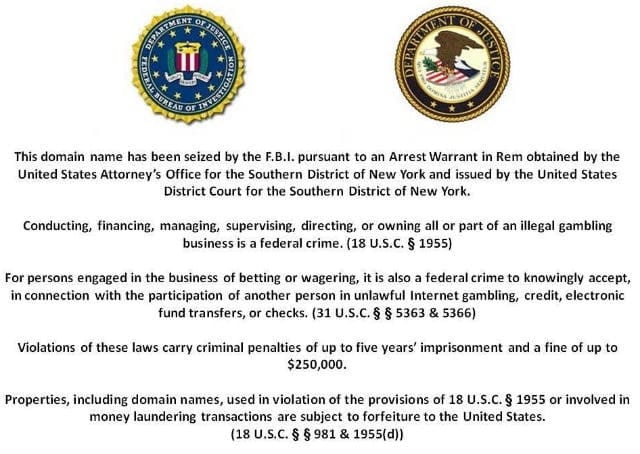Knowing when to hold 'em and knowing when to fold 'em

I have recently rediscovered my passion for playing poker. Poker and I have had a love/hate relationship for over 20 years now.
As with many poker players my age, I really discovered the game while watching the 2003 World Series of Poker (WSOP) on ESPN. The WSOP is held every year in Las Vegas. This one year, ESPN must have been desperate for television programming to fill gaps in their primetime slots. So they edited and packaged the event in a manner that presented poker as an exciting sporting event. It was really very well done and captivating
The more I learned about the game from the broadcasters, the more I was drawn in. I was at Barnes & Nobles Bookstore three or four times a month buying poker books and magazines.
Watching that 2003 WSOP, I became even more fascinated by the players from all over the globe along with the wide spectrum of personalities among the group of 839 contestants.
There was the grizzled veteran poker pro, Sam Farha, who always had an unlit cigarette in his mouth. If there was ever a movie made about his life, Humphrey Bogart would be perfect casting to play him, if Bogart were alive, of course. Farha had his hair slicked back. He fit the Italian stereotype. He wore a suit jacket. He wore a white button down shirt with the top two or three buttons unbuttoned revealing a few gold chains and a tuft of chest hair.

There was the cry baby, Phil Hellmuth. Hellmuth’s famous quote was, “If it wasn’t for luck, I’d win every hand.” Every time he’d lose a hand, he would stand up and storm around the table, raising his arms to the sky, and berating his opponent for being rewarded for playing so badly. It was must see TV and I would just sit there hoping he would lose.
“How dare you call me with that crap? Oh my god, you are so bad.”
His antics would later warrant him the nickname, “The Poker Brat.” It fit to a tee.
There was Phil Ivey – the young black stoic kid wearing a Steve Francis basketball jersey and a hat turned backwardst. Phil Ivey would become one of the biggest money winners in poker history, garnering him the nickname “Poker’s Tiger Woods.”
There was “The Professor” Howard Lederer. He did, indeed, look like he had just come from teaching a class at Harvard. He was disheveled and was always very methodical in making his decisions. You could see the wheels turning and the numbers and odds calculations circulating in his head.
A decade later, Lederer would become the most hated person in poker after co-founding an online poker site called Full Tilt Poker and robbing his customers of millions of dollars.
Then there was the chubby novice who would go on to win the tournament. This guy needed no nickname. His real name was Chris Moneymaker. Moneymaker beat Sam Farha heads up to win the $2.5 million top prize. Moneymaker got around the normal $10,000 buy-in for the tournament by winning a $40 “satellite” tournament online on Pokerstars. The prize for winning that satellite tournament was a free entry into the WSOP.

Suddenly, everyone thought they could be the next Moneymaker. If he could do it, so could anybody. Just look at the guy.
Thus began the poker boom. The WSOP began in 1970 with only seven players. During the 1980’s, there were never more than 200 players in the tournament. When Moneymaker won in 2003, there were 839. The following year there were 2,576. This year, in 2024, there were just over 10,000 entries with the grand prize being a whopping $10 million.
I was swooped up in the poker boom. I was in my early 30’s at the time. Most of the people that also got hooked into the game and began believing they could earn a living playing were college kids.
I became pretty good at poker, but I never risked too much. I stuck to the “micro stakes.” The most I would ever buy into a tournament was $11.
I wouldn’t play cash games. Cash games are where you win or lose money on every hand, whereas in tournaments, you only pay the initial fee and then, hopefully, get paid at the end depending on where you finish.
So you could be entertained playing for hours and only risk losing those $11 you paid to get in the tournament, but you could, possibly, win $5000 if you beat all the other 2,000+ entries – which I did twice.
But, then, came April 15, 2011 – a date all poker players know as “Black Friday.” That was the day everyone, like myself, rolled out of bed, probably threw on whatever clothes were scattered around on the floor, and logged onto their computers to their favorite poker sites. What they saw that morning was a pop-up box emerge on the screen with an official US Department of Justice logo stating that the sites had been shut down by the U.S. government and all the players’ funds had been seized and frozen.

Was this a bad dream? What the hell was going on?
I’m sure many of us rubbed our eyes, logged off, and tried logging back in. Same message. Many of us poker players, immediately, went to Two Plus Two – the most popular online forum for poker players to discuss any and everything – to find out what the hell was going on.
To make a long story shorter, online poker was over for Americans. The Republicans had succeeded, at the last second, in sneaking in an addendum to a Safe Port Act which would help protect our mainland ports from terrorist attacks.
Who would oppose that, right? Well, many congressmen who voted for it didn’t realize that they unknowingly, also voted for banning banks from processing checks from offshore online poker sites.
What the hell did that have to do with protecting our seaports? Absolutely nothing. Boy, was that a rude awakening for me as to how dirty politicians can be. Don’t underestimate the impact that had on my suppressed depression and my ever-growing negative outlook on the world.
I had to sweat out about six months until I finally got my money back, but I did get it back. Some people weren’t as lucky.
As I mentioned before, that “Professor” guy, along with some other poker friends including Phil Ivey and Chris Ferguson (another character who was nicknamed “Jesus” due to his beard and long hair), had started a poker site called Full Tilt Poker. Apparently, “Professor” Lederman was paying himself and his friends multi-million dollar salaries from players’ funds. Never did he imagine the day would come when he would have everyone on the site try to withdraw their money.
Those Full Tilt players had lost almost all hope of getting their money back until Pokerstars bailed them out by buying Full Tilt Poker two years later and reimbursing all those people.
I haven’t played poker since. That was until June of this year. While sports betting has grown widespread popularity and acceptance in today’s society, online poker is the forgotten child.
As desperation has long since set in, I researched if there was any way to skirt the system to play online poker for real money again. I found a couple of sites that were accepting U.S. players but it required jumping through lots of hoops to get money on and off their sites.
Essentially, these couple of poker sites only accepted crypto as currency. Commence a crash course on crypto currency. Up to this point, all I knew, or I think I knew, was that crypto was fake money and that Tom Brady lost a crapload of money investing in Bitcoin. I thought crypto was Bitcoin.
I quickly learned that there were hundreds of other crypto currencies besides Bitcoin. I had to find a crypto exchange to handle crypto transactions. I had to find a separate crypto wallet to act as a bank to securely keep my crypto. Then, I had to choose a currency to purchase or invest in.
But that wasn’t the end of it. Now I had to figure out how to do the actual transaction of sending and receiving the crypto to somebody (in this case, the poker sites). That involved copying and pasting some kind of specific address or sending a QR code to the recipient. If you screwed that up, your money would get sent to who knows where and there would be no way of recovering it.
That’s just a long way of saying that I have started playing poker again. Poker, played properly, can be boring. That is why many online players choose to play several games at once. I’ve seen players utilize three monitors to play as many as 36 tables at once. During my heyday, I maxxed out at about eight tables – four each on two monitors. It takes a lot of experience, but once you get good at poker, you know which hands to play and which ones to fold. That is how you can play that many games at the same time. You pretty much play on auto pilot.
Seeing as how folding hands over and over can be boring, I like to listen to music when I play. Recently, I compiled a “poker playlist” to listen to while I play. Besides my classic rock, grunge, and heavy metal songs that I prefer, I made sure to put in a few poker related songs from other genres. Obviously, I had to put in “Poker Face” by Lady Gaga. I also included Ol’ Blue Eyes Frank Sinatra’s classic, “Luck Be A Lady.”
"Luck Be a Lady" by Frank Sinatra.
No list about gambling would be complete, however, without thee quintessential poker song. That would be Kenny Rogers’ classic hit, “The Gambler.”
I was never a big country music fan growing up. Looking back, you could say I hated country music. Back in the 1980’s, when you thought country music, you thought of Willie Nelson, Dolly Parton, Johnny Cash, Reba McEntire, and Alabama.
There was no disputing when you heard a country song. You knew it when you heard it. The singer always had a Southern twang. The song would be about some poor guy or gal that had fallen on hard times. The lyrics, almost always, included something about alcohol and smoking, usually at a bar. The only instrument you heard was an acoustic guitar.
It is not like nowadays when the line between country music and pop, rock, or even rap music has become blurred. The first time I noticed it was when I heard Hootie from Hootie and the Blowfish started doing country music. Hootie is a country musician?
Today, you have pop superstars like Beyonce coming out with country albums. Taylor Swift crossed over a long time ago, or did she start out as country? I don't know. I was floored when I heard rapper Jelly Roll was performing at the Country Music Awards and that he was nominated in several categories.
Jelly Roll singing with Wynonna Judd at the 2023 Country Music Awards.
It’s not the same country music I grew up with. Willie Nelson never looked as good as Beyonce.
There was one country superstar in the 1980’s that I could stomach, however. That was Kenny Rogers. I am sure the reason I liked him was because my brother chose Kenny’s song, “Lady,” for his wedding song. To this day, I think “Lady” is the most romantic song ever written and Rogers sang every word with just the right amount of emotion.
"Lady" by Kenny Rogers
But “Gambler” was Kenny Rogers’ biggest hit. I have heard it hundreds, if not thousands, of times.
Recently, however, I was listening to it as I was patiently awaiting some playable hands during one of my poker sessions.
I followed along as the song tells the story of Kenny Rogers riding on a train “bound for nowhere.” He comes across an old man who had made “a living of reading people’s faces.” This stranger was a professional gambler. In exchange for a “swig of [Rogers’] whiskey,” the old man gave Rogers some advice.
The chorus goes like this:
You’ve got to know when to hold ‘em
Know when to fold ‘em
Know when to walk away
Know when to run
You never count your money
When you’re sittin’ at the table
There’ll be time enough for countin’
When the dealin’s done
"The Gambler" by Kenny Rogers
The song has weaved itself into American culture. It can be heard in video games, ads, casinos, TV shows, and movies. Rogers even did a series of TV movies in the early 1980’s based on the song. Kenny Rogers, of course, played The Gambler.
At the end of the song, I always assumed the old man was tired and fell asleep.
And when he’d finished speakin’
He turned back toward the window
Crushed out his cigarette
Faded off to sleep
And somewhere in the darkness
The gambler he broke even
But in his final words
I found an ace that I could keep
Wait a minute – “But in his final words”? Did the gambler die at the end of the song?
After four decades of listening to this song, here I was, on a random Fall day, playing online poker and having this revelation about the song. I stopped playing and went on my phone to investigate this.
I searched “gambler die at end of the song.” Of course, the results were unanimous that he did. I felt so dumb. How many times had I heard and sung this song? And it never occurred to me that the poor old man died at the end?
I should have known better. This was a country song. It had to include death. It already included the other ingredients of drinking and smoking.
I began looking at other articles discussing the meaning of the song. It had so much more meaning than I thought. The song wasn’t just about poker, it was about life. The chorus took on so much more meaning to me.
“Cause every hand’s a winner, and every hand's a loser.”
I began seeing more meaning in the words. This song wasn’t as simple and straightforward as I had believed.
The song is telling you that life is not always going to deal you pocket aces (two aces, the best starting hand in hold ‘em poker). Many times life deals you a seven and a two (the worst starting hand in poker), but even a seven-two can win if you the dealer deals 7-7-2 on the flop. You now have a full house – one of the best hands in poker.
And pocket aces, forget about it. Two aces in your hand is far and away the best starting hand, but many hearts have been broken, and bankrolls crushed, by this starting hand.
The same can be true in life. Sometimes when life deals you a bad hand, it is an opportunity for something glorious. Something good can be extracted from even the worst situations.
Maybe if you weren’t in that bad car accident, you wouldn’t have met that nurse who would go on to become your wife.
Maybe if you hadn’t gotten cancer, you never would have been inspired to write a beautiful song that would be heard by millions of people worldwide. I mention this example because my next article is going to be on Nightbirde – a singer who competed on America’s Got Talent but had to withdraw due to her failing health. I include the beautiful song she wrote and sang on the show here:
"It's OK" by Nightbirde
We have also seen the opposite to be true. How many instances have we seen where sucess has ruined, or ended, someone’s life? Sadly, we see it every year with musicians and actors – people like Matthew Perry, Kurt Cobain, Chris Cornell, Chester Bennington, and Robin Williams. Some people just don’t know how to handle fame and fortune, and all the attention and scrutiny that comes along with it.
Biggie Smalls sang, “More money, more problems.” It would prove to be a premonition as Smalls would get shot and killed at the age of 24 as a result of a hip-hop music war.
Sean Combs, aka Puff Daddy, aka P. Diddy, collaborated on that song with Biggie. Combs has been valued to be worth anywhere between $400 million and one billion dollars, yet he is looking at spending the rest of his life in jail after having been arrested and charged with some of the most heinous crimes imaginable.
So, yes, everything is not as it may seem on face value.
Rogers’ famous chorus about “knowing when to hold em,’ knowing when to fold ‘em,” can be applied to every conflict we may face.
It refers to the “fight or flight reflex” term anyone who has gone to therapy has heard hundreds of times. Every time someone encounters a stressful situation, one has to decide if they want, or need, to face the situation head on or decide that it just isn’t worth it.
The line could also be applied to knowing how to choose what things to let go.
My theory on life can be boiled down to two things – the Golden Rule and The Serenity Prayer. The Serenity Prayer teaches you to accept the things you can’t change, have the courage to change the things you can, and the wisdom to know the difference. Isn’t that another way of saying “knowing when to hold them or when to fold them”?
The next line of the song about “knowing when to walk away and know when to run” could be seen as a reference to our survival instinct. There may be circumstances, like toxic relationships, where experience has taught you that this guy or girl you are falling for is no good for you. Don’t walk away, run.
When Rogers sings about never counting your money when you are sitting at the table, there will be time enough for counting when the dealing is done teaches us to always look at the big picture.
I know I catch myself constantly checking my bankroll after each hand of poker. I know I should just concentrate on playing well and making the right decisions based on calculations and other factors. Whatever happens after that, happens. I can only control my decisions. I can’t control the cards that are going to come out. I have to constantly remind myself not to be results oriented.
I also need to be disciplined. If I am playing well, keep playing. If not, I should walk away. It’s that simple.
But often, I let one hand impact me. In poker, it is called going on tilt. Tilt is when losing one hand gets you so upset that you begin playing angry and overly aggressive. You start seeing red. Your blood boils. Before you know it, you are losing more and more money chasing your losses.
Counting your money at the end teaches us to not put too much stock in the events of one day or even one hand, but to focus on the end result. Focus on making those right decisions, even if the outcome is not what you would have liked.
Poker players know about variance. Even if you are the greatest poker player in the world, your bankroll will not shoot upward in a straight trajectory. It will ebb and flow. There is no avoiding it. The term “variance” is just an awareness of this concept. You may lose money at the end of one day, or maybe even at the end of the week. That will happen, no matter how good you are. If you are a solid player, however, at the end of the year, you should end up way ahead.
The song ends, as I now know, with the gambler dying. Kenny Rogers sings that in his final words, he found an ace that he could keep. Again, I was so dumb and naive I always took it literally to mean that he found an actual card, up the gambler’s sleeve perhaps.
I now know that the lyric means that Rogers learned a life lesson from the gambler’s final words and that he can keep those words of wisdom and carry it with him forever.
Now we all have an ace up our sleeve thanks to The Gambler.

